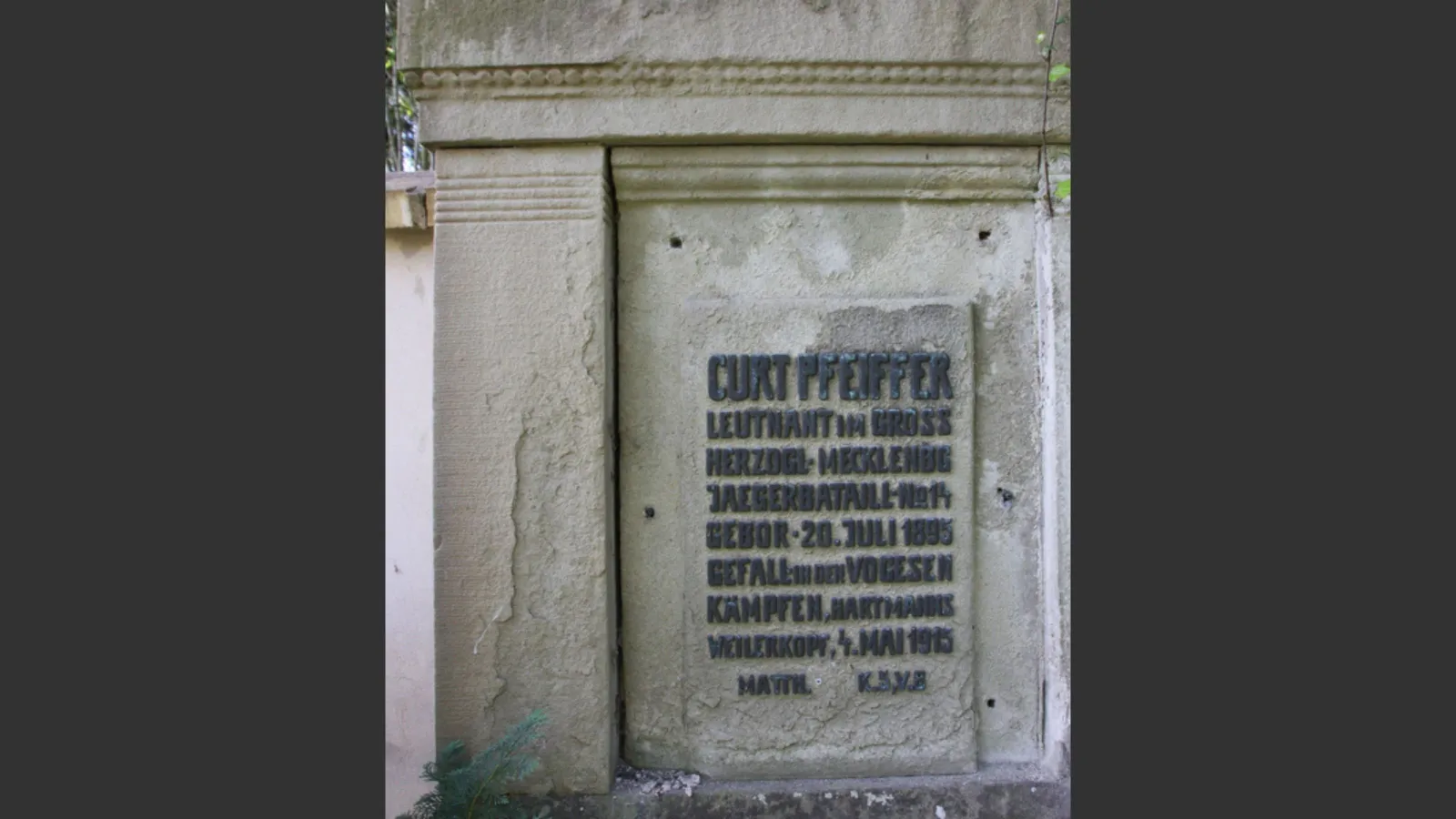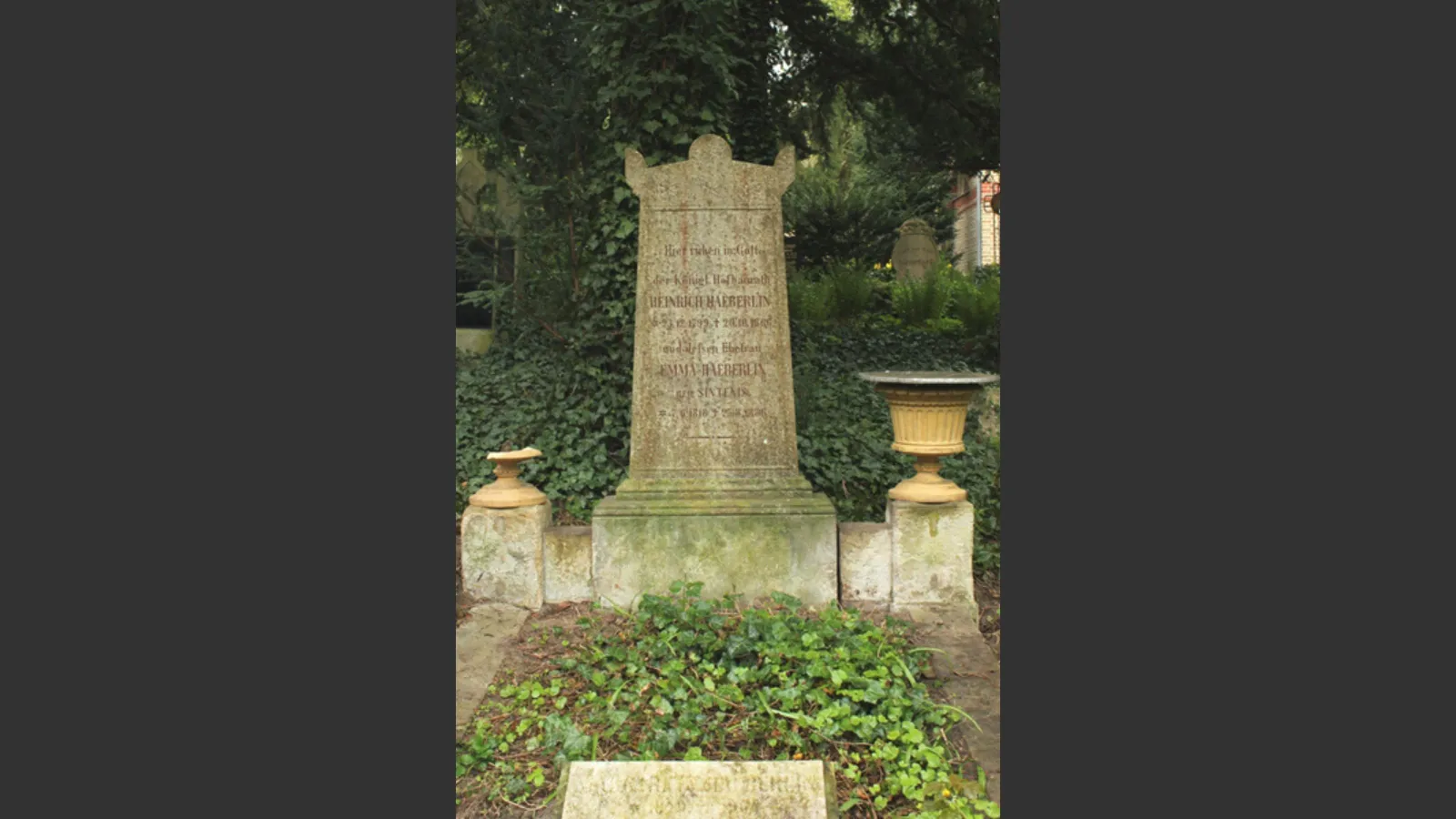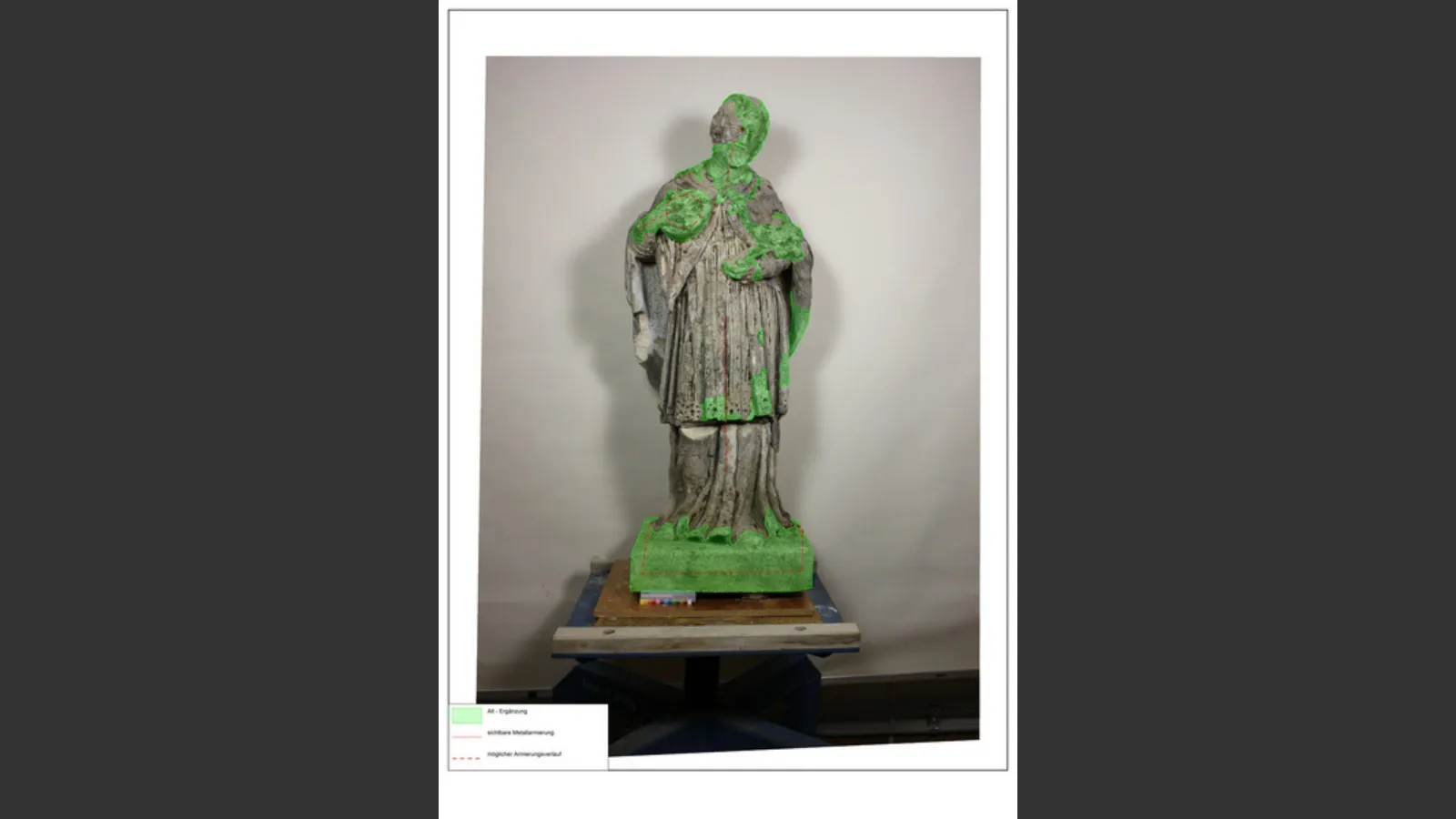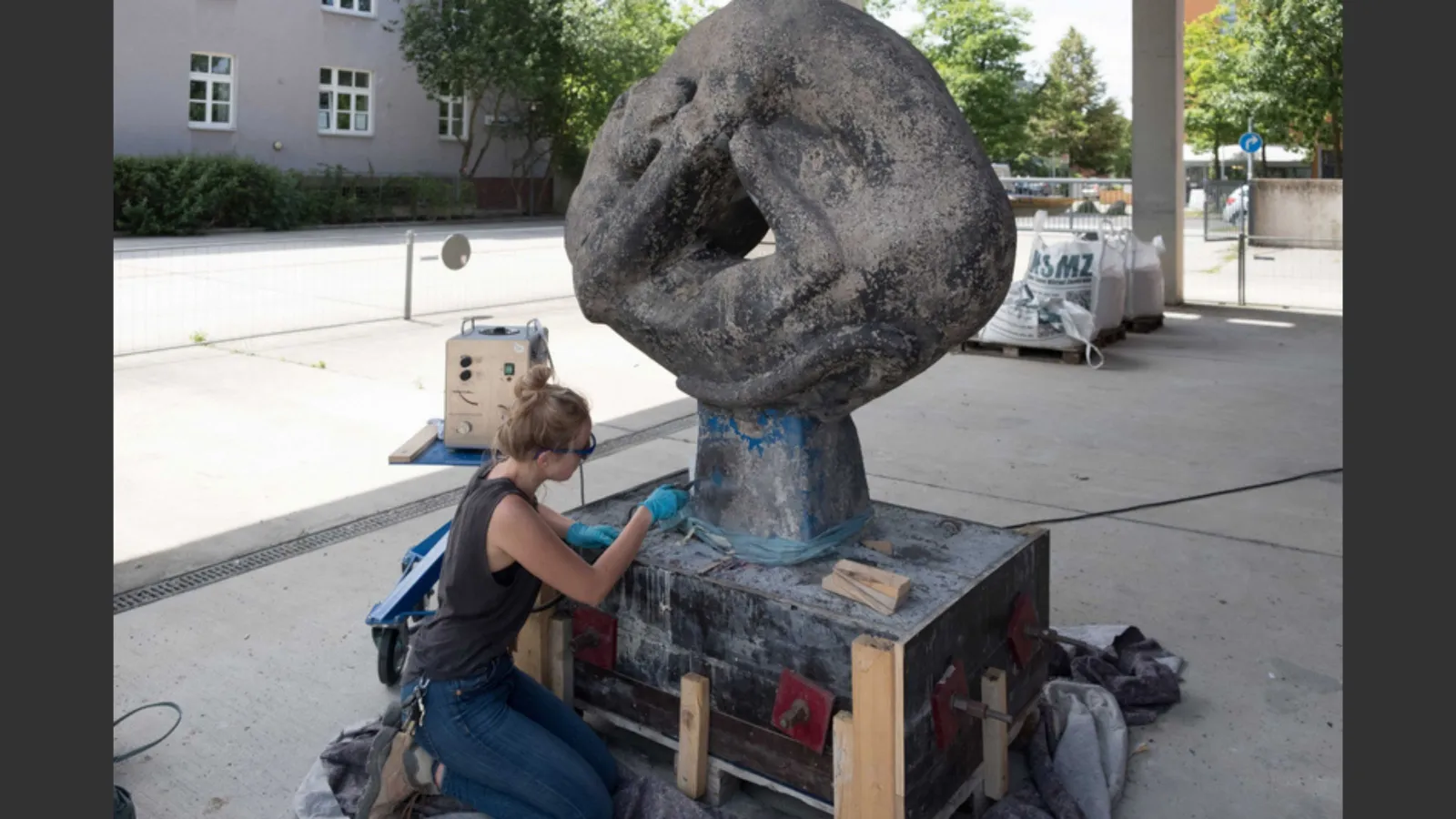Conservation and Restoration – Stone
In the Stone Conservation specialisation, students begin their specialisation with the courses Stone Materials Science, Fundamentals of Stone Conservation and Historical Techniques, which provide an initial overview of the most important chapters in these areas. The seminar of the same name serves to deepen and expand the methods and materials of stone conservation in particular, which then accompanies the students continuously throughout the entire degree programme and which they significantly contribute to with presentations and participation in discussions.
In the first semesters, the practical exercises in the stone conservation workshop initially pick up on topics from the theoretical courses and introduce students to the technical application and realisation on test pieces and small objects with relatively simple tasks. This involves, for example, techniques of cleaning, compress treatment, bonding, injection, supplementation, etc. In some cases, such as in the area of stone consolidation, students first work and practise with test specimens. In doing so, they learn to examine and understand the effects of the measures and means using non-destructive and destructive examination methods and to assess these methods of conservation and examination more critically.
Practical conservation and restoration work on objects with complex problems or participation in research projects takes place after the practical semester in the higher semesters. Here, students work more independently and usually in groups of two or in small groups, which come from successive years in projects lasting several years. The frequent demand from practising conservators that workshop practice at universities should primarily be geared towards the "real, hard market laws" is countered by the idea that students should also be given the opportunity and freedom to try out ideas, to "research", to go into more depth and to deal more intensively with ways of making decisions. However, the aim of the projects is usually also practice-orientated.
For smaller projects, such as individual objects or "prototypes" of an ensemble, the task consists of comprehensive object conservation and restoration, from recording, damage analysis, examination, possibly dismantling, for example of a stone sculpture, to the individual measures, reinstallation, documentation of measures and maintenance concept.
In the case of large or long-term projects, and especially in the case of planned tenders, the aim is the in-depth processing of completed sub-areas or the development of a conservation concept, but only the execution of work samples for upcoming measures.
Overall, the theory and practice of this degree programme gives students the opportunity not only to acquire extensive knowledge and skills in the main areas and some specialist areas, but also to develop an independent, critical methodology and approach for the complex, future problems and areas of responsibility of the respective career as a stone conservator with a diploma/BA and MA degree.
Research-based learning in the stone specialisation
Prof. Dr. Jeannine Meinhardt gives a brief insight into studying conservation and restoration in the field of stone. She describes how, in addition to the lectures and seminars, research-based learning is very important in the degree programme.
Projects in the stone study programme
Project work is a key component of the degree programme Conservation and Restoration. We often work together with our cooperation partners – either in our workshops on campus or directly on site in the region.
Stone | Pfeiffer Tombstone
Inventory and condition survey on two elements of the tombstone as well as the creation of a damage catalogue with resulting damage cause model and concept development.
Stone | Terracotta Vases from Haeberlin Tomb
Task: Inventory and condition assessment and development of a conservation concept for two terracotta vases of a tomb of the former royal court architect H. Haeberlin at Bornstedt Cemetery. The vases were probably made in the 2nd half of the 19th century and come from the March pottery factory.
Stone | Garden Sculpture Nepomuk
Inventory and condition survey and development of a conservation concept
Stone | Sculpture "Rangelnde Panther" by Dietrich Rohde
The reinforced and multi-framed concrete sculpture by the sculptor Dietrich Rohde comes from Brandenburg an der Havel. The figure shows numerous damages, the cause of which lies in the numerous materials, the production technology, the installation, among other things.
Downloads
- Poster Studiengang Konservierung und Restaurierung - Stein (PDF, 153.24 KB)
Contact
Student counselling
Workshop management
Counselling
The consultation will take place with Prof Dr Jeannine Meinhardt. Please register in advance by e-mail: jeannine.meinhardt@fh-potsdam.de in order to receive a confirmation of registration.
Due to the research semester, counselling appointments can only take place online and by appointment after prior registration.
Location: Laboratory and Workshop Building/Room 243





